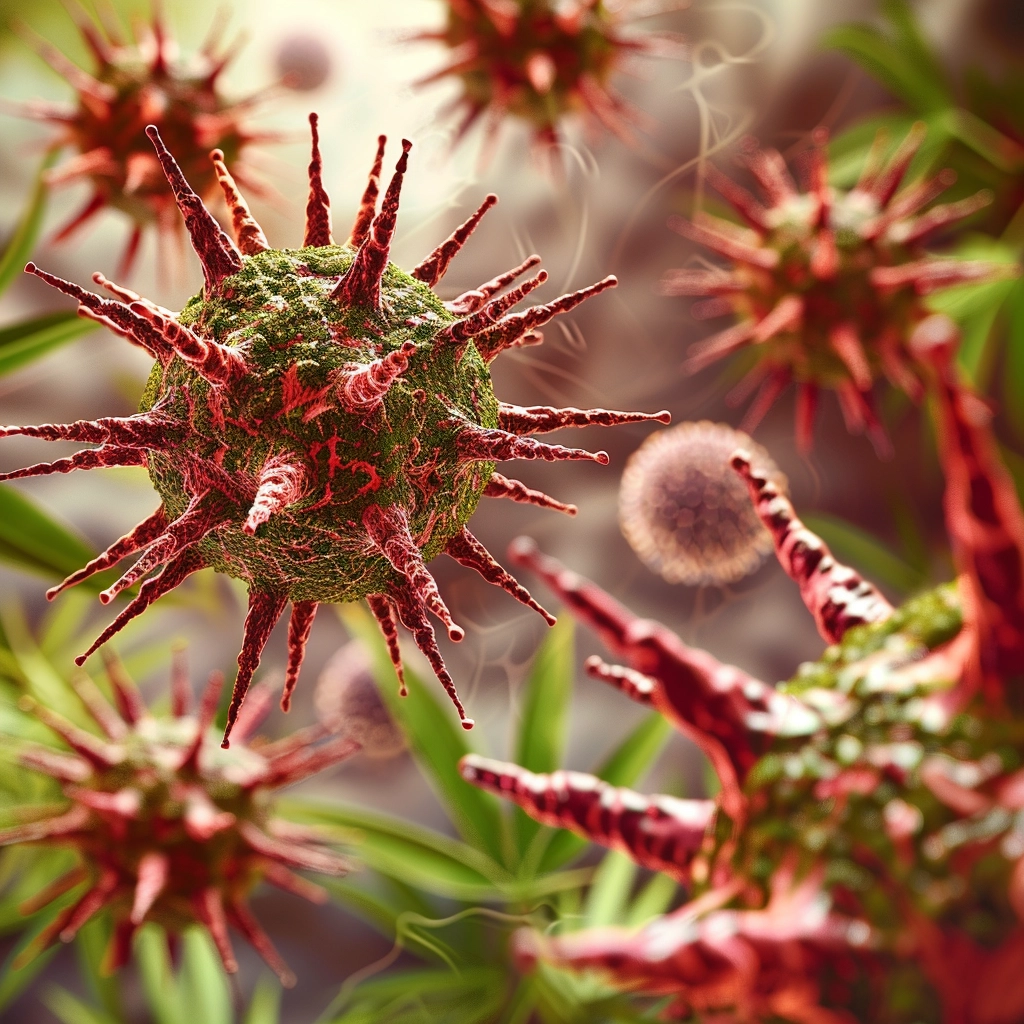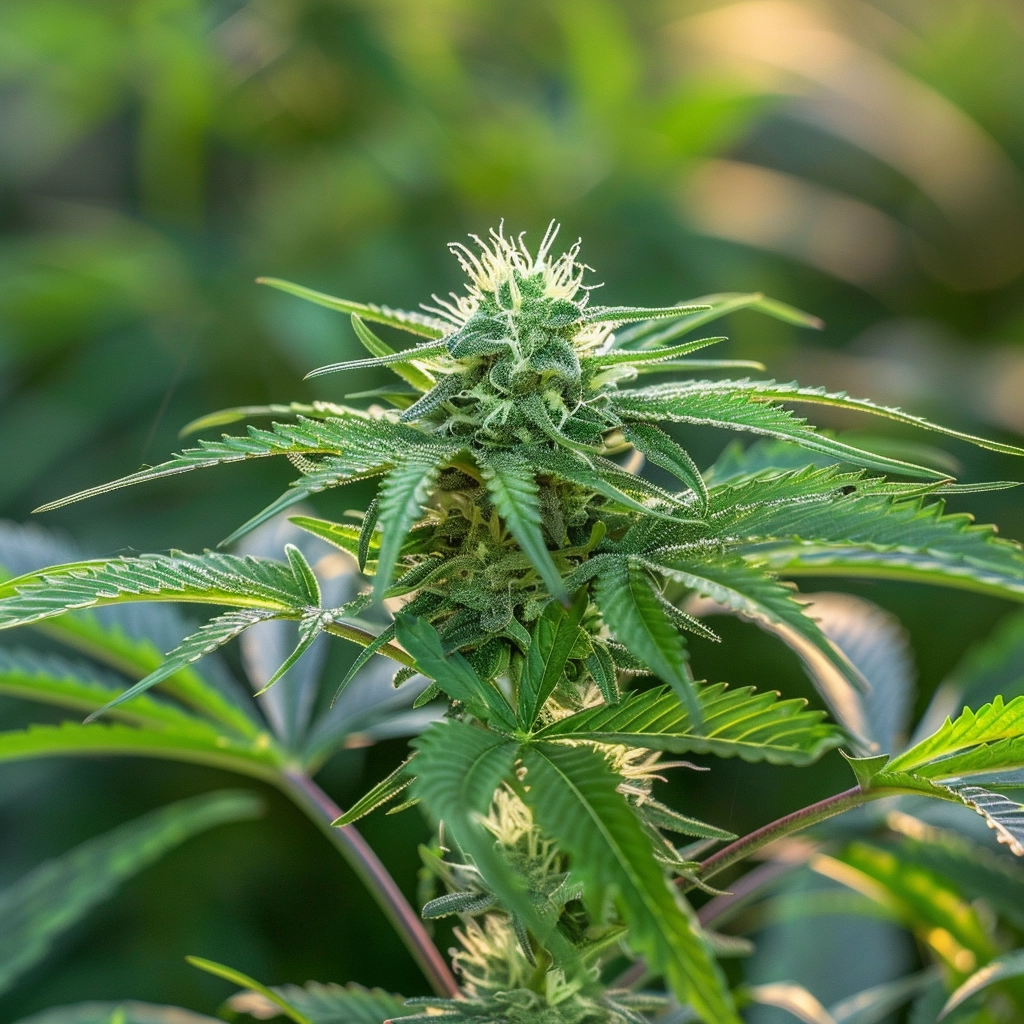In the complex and often mystifying world of autoimmune disorders, where the body mistakenly turns against itself, medical cannabis emerges as a promising sentinel of balance and relief. These conditions, characterized by an immune system that both protects and perpetrates, range from rheumatoid arthritis to multiple sclerosis and lupus, each manifesting with its own set of painful and debilitating symptoms. This exploration delves into how cannabis is not just altering but revolutionizing the therapeutic landscape for autoimmune diseases, offering new hope and a gentler path to symptom management.


Table of Contents
ToggleUnderstanding Autoimmune Disorders: A Complex Battle Within
Autoimmune disorders manifest when the immune system misidentifies healthy cells as threats and attacks them, leading to widespread inflammation and a myriad of symptoms. Traditional treatments have often leaned heavily on pharmaceuticals like steroids and immunosuppressants, which, while effective, come with a high cost in side effects and long-term health impacts. Enter cannabis, with its unique ability to modulate the immune system and reduce inflammation naturally.
The Immuno-Modulating Effects of Cannabinoids
The secret to cannabis’s effectiveness lies in its interaction with the human endocannabinoid system (ECS), a critical regulator of balance and harmony in the body. The ECS’s involvement in immune system modulation is particularly relevant in autoimmune diseases. Cannabinoids like CBD (cannabidiol) and THC (tetrahydrocannabinol) engage with the ECS, helping to temper the immune response, reduce inflammation, and alleviate pain.
CBD: The Anti-Inflammatory Powerhouse
CBD stands out for its anti-inflammatory and immunosuppressive properties, making it a key player in treating autoimmune conditions. By reducing the production of inflammatory cytokines and limiting T-cell function, CBD can help slow the progression of autoimmune diseases and improve quality of life without the psychoactive effects associated with THC.
THC: Pain Management and Beyond
While THC is often noted for its psychoactive effects, it also possesses powerful anti-inflammatory and analgesic properties. For patients suffering from chronic pain due to autoimmune disorders, THC can provide significant relief. Additionally, its appetite-stimulating effects are beneficial for those who may suffer from weight loss due to their condition.


Integrating Cannabis into Autoimmune Disease Management
The incorporation of medical cannabis into treatment strategies for autoimmune disorders requires a nuanced understanding of its potential interactions with the body, existing medications, and the disease itself.
Personalized Cannabis Therapies
Given the complexity and variability of autoimmune disorders, personalized medicine becomes crucial. The right cannabis strain, dosage, and administration method can vary significantly among individuals, influenced by the specific autoimmune disorder, symptoms, and patient preferences. Indica strains and high-CBD products are commonly recommended for their relaxing and anti-inflammatory effects, while sativa strains might be chosen for their energizing and mood-lifting properties.
Administration Methods Tailored to Patient Needs
The method of cannabis administration plays a crucial role in its efficacy. Smoking or vaporizing provides immediate relief, which is vital for acute pain flares. Conversely, edibles or oils, which offer delayed but longer-lasting effects, might be more suitable for sustained symptom management.


Challenges and Considerations in Cannabis Treatment
Despite its potential, the use of cannabis in treating autoimmune disorders comes with challenges. The legal status of cannabis, potential side effects, and the stigma associated with its use are significant barriers. Additionally, the lack of standardized dosing and the variability of cannabis-based products can complicate treatment plans.
Navigating Legal and Medical Landscapes
Patients and healthcare providers must navigate the complex legal landscape that governs medical cannabis use. This involves not only understanding state and federal laws but also advocating for changes that allow better access and more comprehensive research.
Future Directions: Research and Innovation
The future of cannabis in autoimmune disease treatment is bright, with ongoing research aimed at uncovering how different cannabinoids and their combinations can best be utilized. Innovations in genetic profiling and biomarker discovery could further tailor treatments to individual patient needs, enhancing the efficacy and safety of cannabis-based therapies.
Conclusion: A New Era of Autoimmune Treatment
As we continue to explore and understand the full capabilities of medical cannabis, its role in managing autoimmune disorders is set to expand. With its potential to offer a more natural, less harmful means of symptom management, cannabis stands at the forefront of a new era in autoimmune treatment. This green ally not only promises to soothe the symptoms but also to restore a sense of balance and peace to those who have long battled against their own bodies.
FAQ: Medical Cannabis for Autoimmune Disorders
How does medical cannabis help in the treatment of autoimmune disorders?
Medical cannabis interacts with the endocannabinoid system (ECS), which plays a key role in regulating immune system responses and inflammation. Cannabinoids like CBD and THC can modulate immune function, reduce inflammatory responses, and alleviate symptoms such as pain and swelling commonly associated with autoimmune disorders.
Can medical cannabis cure autoimmune diseases?
No, medical cannabis does not cure autoimmune diseases. It is used to help manage symptoms and improve quality of life for patients. Cannabis is particularly effective in managing pain and inflammation, reducing the need for certain pharmaceuticals that can have severe side effects.
What are the most effective cannabinoids for autoimmune disorders?
CBD is highly regarded for its anti-inflammatory and immunosuppressive properties, making it a favorable choice for treating autoimmune conditions. THC is also beneficial due to its pain-relieving properties. Often, a combination of CBD and THC is found to be more effective due to the entourage effect, where the presence of multiple cannabinoids enhances the overall therapeutic effects.
Are there specific strains of cannabis that are better for treating autoimmune disorders?
Yes, certain strains may be more beneficial for autoimmune disorders. Indica strains are typically recommended for their anti-inflammatory and sedative effects, which can help manage pain and inflammation while also aiding sleep. However, the best strain can vary depending on the individual’s specific symptoms and reaction to different strains.
What are the recommended methods of consuming cannabis for autoimmune disorders?
The choice of consumption method can depend on the patient’s preference and specific needs. Inhaled cannabis (through smoking or vaporizing) provides quick relief from acute symptoms, while edibles or oils might be preferred for their longer-lasting effects and ease of dosing. Topical applications can also be effective for localized joint pain and inflammation.
Can using medical cannabis replace my current autoimmune medication?
While cannabis can be an effective supplement to autoimmune treatment, it should not replace conventional medications without consulting a healthcare provider. Cannabis is generally used to manage symptoms and may allow for lower doses of other medications, but treatment should be integrated and monitored by a medical professional.
Are there any risks or side effects of using cannabis for autoimmune disorders?
Like all treatments, cannabis use can have side effects, including but not limited to dry mouth, changes in appetite, dizziness, and psychoactive effects (from THC). Long-term use can also affect cognitive function. It is important to discuss these risks with a healthcare provider, who can help weigh the benefits and potential side effects based on your health condition and history.
How do I start using medical cannabis for my autoimmune disorder?
Starting medical cannabis treatment should always be done under the guidance of a healthcare professional experienced in cannabis medicine. This includes obtaining a proper diagnosis, discussing potential interactions with existing medications, and getting legal access to cannabis products through appropriate channels.
Is medical cannabis legal for treating autoimmune disorders?
The legality of medical cannabis varies by location. In areas where it is legal, patients typically require a prescription or medical recommendation to use cannabis for medical purposes. Always check the current laws in your area regarding medical cannabis use.
How quickly can I expect to see results from using cannabis for my autoimmune disorder?
The onset of effects from cannabis can vary based on the method of administration and individual factors like metabolism and the severity of symptoms. Inhalation provides immediate effects, while edibles and oils may take longer to manifest but offer prolonged relief.
These FAQs aim to provide a foundational understanding of how medical cannabis can be integrated into the treatment of autoimmune disorders, offering a complementary approach to traditional therapies aimed at improving patient outcomes and quality of life.
Kannabu's Online Cannabis Educational Resources
Read Educational Online Guides and Articles to Learn About Cannabis
- Navigating the Green Path: CBD vs. THC in Medical Treatment
- The Aromatic Architects of Healing: The Role of Terpenes in Medical Cannabis
- Navigating the Green Frontier: Clinical Trials on Cannabis and Its Effects
- Charting the Green Path: Cannabis Dosing Guidelines for Medical Use
- The Endocannabinoid System: Nature’s Balancing Act in Human Health
- A Green Horizon: Cannabis as an Alternative to Opioids
- Navigating the Mind’s Garden: Cannabis and Mental Health Treatment
- Unlocking the Green Code: Exploring the Genetic Diversity and Pharmacological Promise of Cannabis
- Weaving Green into Gold: The Integration of Medical Cannabis into Traditional Medicine
- The Therapeutic Promise of Medical Cannabis: Exploring the Spectrum of Cannabinoids
- From Young to Old: The Compassionate Embrace of Medical Cannabis in Pediatric and Geriatric Care
- Green vs. Traditional: Navigating the Crossroads of Medical Cannabis and Conventional Therapies
- Beyond the Pain: The Comparative Effectiveness of Cannabis in Chronic Pain Management
- Unlocking Cannabis’s Secrets: The Journey Through Cannabinoid Pharmacokinetics and Pharmacodynamics
- Green Paws: Navigating the Frontier of Medical Cannabis in Veterinary Care
- Unlocking Relief: The Transformative Role of Medical Cannabis in Pain Management
- Harnessing Harmony: Medical Cannabis and the Battle Against Autoimmune Disorders
- Embracing the Night: How Medical Cannabis Transforms Sleep Management
- Turning the Tide: Cannabis as a Catalyst for Relief and Recovery in Nausea and Appetite Stimulation
- Illuminating the Neural Pathways: The Transformative Role of Medical Cannabis in Neurological Conditions
- Harnessing Harmony: Medical Cannabis and the Battle Against Autoimmune Disorders
- A Clearer View: Medical Cannabis in the Treatment of Glaucoma
- Breaking Boundaries: Cannabis and the New Frontier in Epilepsy and Seizure Control
- Revolutionizing Relief: Medical Cannabis in Cancer Symptom Management
- Navigating the Storm: Cannabis as a Beacon of Hope in Multiple Sclerosis Treatment
- Cannabis: A Natural Respite for Arthritis and Joint Pain
- Healing from Within: The Role of Medical Cannabis in Treating Gastrointestinal Disorders
- Healing Invisible Wounds: Cannabis in PTSD and Trauma Treatment
- Balancing the Mind: The Potential of Medical Cannabis in Bipolar Disorder and Mood Stabilization
- Illuminating the Mind: Cannabis in the Treatment of Alzheimer’s and Neurodegenerative Diseases

